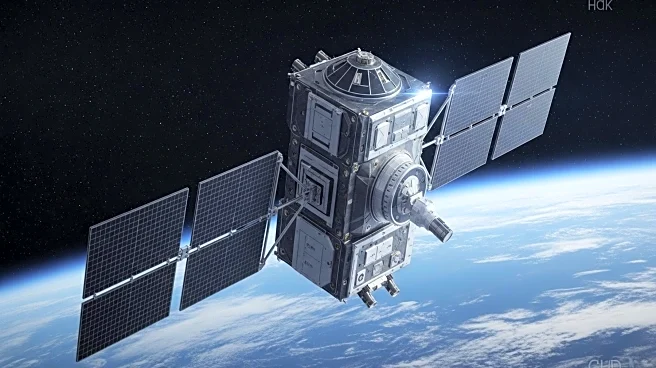What's Happening?
True Anomaly, a space defense startup, is at the forefront of developing technologies to protect U.S. interests in space. Steve Kitay, the company's Senior Vice President for Space Defense, discussed the evolving landscape of space as a warfighting domain. With a background in defense policy and technology, Kitay emphasized the importance of real-time space situational awareness and the need for advanced capabilities to counter threats from nations like China and Russia. True Anomaly's Jackal spacecraft is designed for rendezvous and proximity operations, enabling it to safely approach and assess other spacecraft. This initiative is part of a broader effort to maintain U.S. deterrence and technological superiority in space.
Why It's Important?
The development of space defense technologies by companies like True Anomaly is crucial as space becomes increasingly contested. The U.S. faces significant challenges from countries like China, which has rapidly expanded its satellite capabilities. The ability to protect and defend space assets is vital for national security, as space systems are integral to military operations and communications. The collaboration between private companies and the government is essential to accelerate the deployment of these technologies, ensuring that the U.S. can respond swiftly to emerging threats and maintain its strategic advantage.
What's Next?
As geopolitical tensions continue to rise, the focus will likely remain on enhancing space defense capabilities. True Anomaly and similar companies are expected to play a key role in developing and fielding new technologies. The U.S. government may increase investments in space defense to ensure readiness against potential adversaries. Additionally, the integration of commercial innovations into military applications will be crucial in maintaining a competitive edge. The ongoing collaboration between the public and private sectors will be pivotal in shaping the future of space security.
Beyond the Headlines
The militarization of space raises ethical and strategic questions about the potential for an arms race. As nations develop advanced space weaponry, the risk of conflict in space increases. This situation necessitates international dialogue and potential regulatory frameworks to manage space activities and prevent escalation. The role of private companies in this domain also highlights the need for clear policies governing their operations and partnerships with the government.










